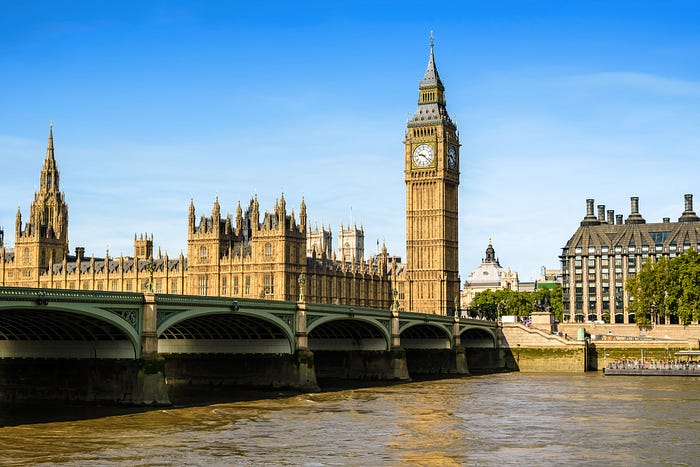Should We Call This…The Coronavirus Budget 2020?
In this article, we will look at this week’s forthcoming budget from the Chancellor of the Exchequer. Can we call this the Coronavirus Budget and what should we expect?

The newly-appointed chancellor Rishi Sunak will deliver his first budget of the year within Boris Johnson’s majority government. Radical tax reforms, emergency, and public spending are to be expected in tomorrow’s budget.
Although this is all just speculation, Mr. Sunak isn’t giving much away about the contents of the budget, but it hasn’t stopped newspapers from (speculating) on what we could expect from the March 2020 budget.
Many speculators think Rishi Sunak, the chancellor will deliver a less radical budget than planned, in the effort to reshape the UK’s economy, as the government accepts the budget will be dominated by the unfolding infection crisis. The government is to set out plans to help to withstand the coronavirus outbreak and control the infectious disease from spreading.
Therefore, can we say the Budget has arguably come at a good time to properly combat the negative consequences of the virus?
You could say yes! We have seen both the US and UK stock market plunge by 7.7% since the worst of the 2008 financial crisis. Almost £125 billion was wiped out by the value of FTSE 100 in the 5th worst day for the index for many leading UK companies, due to panic selling across the markets and shares plummeted.
Which sectors were hit the most?
It is no brainer that the Travel and Leisure sector were very vulnerable to the economical impact of the coronavirus. In recent days, we have seen the collapse of Flybe, Luftansa, The German carrier announced to cut up to half of its capacity in next coming weeks, long-distance Norweigan airline saw its share price drop by 21%. You also say business isn’t a particularly good time for cruiseliners.
There will most likely be a big difference in vulnerability and impact between many sectors, as seen in recent news. I’m sure that both groceries and online shopping have boosted due to amid fear of the virus spreading, causing panic buying.
While some sectors have seen a boost, there is uncertainty within UK companies, fears of the workforce being sent home, which would result in a slump in production. If businesses can’t operate, profit will be on the downturn and jobs are put at risk. Many experts are speculating that the budget will be more of a rescue plan for both the companies and the workforce.
Tej Parikh, the chief economist at the IoD, said:
The government must be at the ready to take swift action to help cash-strapped businesses bridge this challenging period”
So what key policies could we expect to control the coronavirus?
If workers are asked to self-isolate due to fears of catching the virus, Boris Johnson announced workers would be entitled to statutory sick pay from their first day off work.
Extra funding for the health service to fund test centre’s and purchases of testing equipment
Attempts to attract back the retired doctors and nurses to help with the pressure of the anticipated epidemic.
I will be listening to speech and hearing how the government will help companies who are facing financial distress as a result of cash flow issues from the virus impact. So just how can the government help companies? The government could at lowering business costs and support investments to amplify the post-outbreak recovery, provide companies with more time to pay VAT, payroll and corporation taxes, just to name a few.
But let’s not forget, this isn’t going to be about just the coronavirus. In recent weeks, the UK has been battered by some of the worst floods since the storms of 2013. Although the coronavirus outbreak requires major attention as the number of cases across the UK has increased, there are many other important issues that also need to be taken into account including climate change, NHS and the floods.
What other key policies could be also expected?
An increase in flood defenses, rising from £2.6bn to £5.2bn over 5 years, including protection for up to 336,000 homes in England and 2,000 coastal defenses to be built.
Increase in capital spending as part of the national infrastructure strategy major projects such as HS2 and Northern Powerhouse Rail.
£5 billion rolls out to provide the UK with faster broadband by 2025 and a £4 bn deal to boost 4G Coverage across the UK, helping Scotland and Wales, especially in rural areas.
We are to see a rise in the minimum wage for those on low paid income; aged 18–20 £6.45, 21–24 £8.20 and 25 and over -£8.72.
How does the government fund the extra promises? We could see the following being scrapped;
Fuel Duty
Bring the end of the freeze fuel duty, but many speculate this would damage the economy and the raid the pockets of millions of motorists.
Entrepreneurs Relief
It could be abolished or reformed in the budget, saving an estimated £2.6bn The Entrepreneurs tax relief allows business owners to pay a reduced amount on capital gains tax when they sell or wind-up their business.
Pension Tax Relief
A pension tax relief reform for those people earning more than £50,000 a year, cutting the relief from 40pc to 20pc, raising an estimated £10bn for the chancellor.
I am sure eyes will be glued to tomorrow’s budget and I would hear my voice on what you would like to see the budget and your opinion on how best the government should handle the outbreak of the coronavirus. If you would like to network with us, please visit my Linkedin account.
Disclaimer: The information in this article is for educational purposes only and should not be treated as professional advice.
